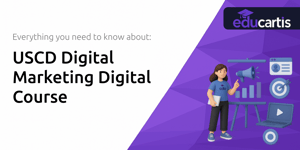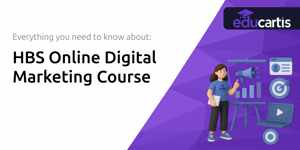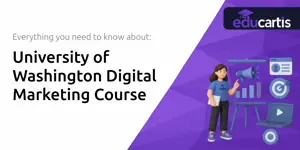In today’s dynamic financial landscape, advisors must continuously refine their skills to remain competitive and deliver exceptional value to clients. As technology reshapes the industry, mastering tools like Excel becomes essential for effective data analysis, forecasting, and reporting. Online courses now offer flexible pathways to acquire both technical expertise and professional credentials, allowing financial advisors to elevate their practice without disrupting client commitments.
Whether you’re a seasoned professional or a newcomer to the field, strategic investment in targeted coursework can propel your career forward. From foundational concepts in budgeting and tax strategy to advanced financial modeling and portfolio management, curated online programs provide the knowledge and hands-on experience necessary to stand out. Let’s explore how you can leverage these offerings to unlock new opportunities and maximize client satisfaction.
The Critical Role of Excel Mastery
Excel remains the cornerstone of financial analysis, budgeting, and reporting in advisory practices worldwide. Advisors who harness its full potential can streamline workflows, derive deeper insights, and present information with clarity. Developing proficiency beyond basic formulas enables you to build sophisticated models, perform scenario analysis, and automate repetitive tasks.
Embarking on an Excel learning path typically begins with core skills—spreadsheet formatting, functions, and pivot tables—and progresses to advanced techniques such as macros, VBA scripting, and complex financial modeling. With consistent practice and real-world case studies, you’ll gain confidence in navigating large datasets and generating professional reports for stakeholders.
Beyond technical know-how, Excel expertise signals to employers and clients that you possess the agility and precision needed in high-stakes environments. By cultivating a reputation for efficient, data-driven solutions, you can build lasting client relationships through trust and demonstrate measurable impact on their financial goals.
Leading Online Course Providers
A wide range of platforms cater to diverse learning preferences—self-paced, live virtual classes, and guided specializations. Below, discover top providers trusted by financial professionals worldwide:
- Coursera: Offers courses from Yale and University of Pennsylvania on Finance & Quantitative Modeling, Financial Markets, and Investment Banking.
- Wharton/Wall Street Prep: An 8-week FP&A Certificate program featuring real-world case studies taught by CFOs and industry experts.
- Penn State World Campus: Undergraduate Certificate in Financial Planning with CFP exam preparation and university credits.
- College for Financial Planning (CFFP): Live and self-paced CFP certification prep, plus specialized tax and retirement planning modules.
- Udemy: Affordable, expert-led courses on budgeting, tax strategy, and financial analysis with lifetime access to resources.
Each provider offers unique benefits—self paced flexible learning formats accommodate busy schedules, while live sessions foster peer interaction and accountability. Many courses include practical assignments, downloadable templates, and discussion forums to enhance engagement.
Enhancing Technical and Soft Skills
While technical mastery forms the backbone of advisory services, success also hinges on interpersonal abilities. Courses that integrate both skill sets prepare you to deliver comprehensive solutions and foster lasting relationships.
- Hands on case studies and simulations offer realistic practice in risk assessment and portfolio construction.
- Modules in communication and business development teach strategies for client acquisition and retention.
- Ethics and professionalism courses ensure you uphold regulatory standards and build credibility.
By combining advanced Excel training with targeted soft-skill development, you can navigate client meetings with poise, present complex analyses in digestible formats, and anticipate stakeholder needs. This holistic approach cultivates trust and positions you as a true partner in your clients’ financial journeys.
Strategies for Maximizing Return on Investment
Pursuing online education demands both time and financial commitment. To ensure a strong ROI, consider the following strategies:
- Align course selection with career milestones—focus on certifications like CFP or FP&A when targeting promotions or specialized roles.
- Leverage alumni networks and mentorship opportunities to expand your professional circle and access insider insights.
- Apply concepts immediately in your practice through client projects or pro bono work, reinforcing newfound skills.
Engaging in continuous learning not only sharpens your capabilities but also signals to employers and prospects your dedication to excellence. As you accumulate credentials, you enhance your marketability and open doors to leadership positions or niche advisory services.
Charting Your Path Forward
The journey to Excel mastery and professional growth is uniquely yours, yet well-structured online programs provide the roadmap. Start by assessing your current skill gaps and career objectives—whether it’s honing forecasting techniques, preparing for certification exams, or refining client communication.
Next, outline a personalized learning plan that balances duration, cost, and content relevance. Factor in real-world application by selecting courses with project-based assessments or interactive labs. Remember, consistent practice and reflection are key to internalizing new concepts.
As you progress, monitor your achievements—celebrate certifications earned and milestones reached. Share your success stories within professional communities, and consider mentoring peers to reinforce your own expertise. This cycle of learning and teaching deepens your proficiency and amplifies your impact within the financial advisory ecosystem.
By embracing deep dive into data analysis and strategically integrating advanced tools, you stand poised to deliver unparalleled value. The combination of technical acumen, client-centric soft skills, and prestigious credentials will differentiate you in a crowded market.
Now is the time to invest in your future. Enroll in a program that challenges and inspires you—explore offerings from top providers, leverage flexible formats, and commit to lifelong learning. The skills you cultivate today will define your success as a trusted financial advisor, capable of guiding clients toward sustainable prosperity.
References
- https://www.coursera.org/courses?query=financial+planning
- https://wallstreetprep.wharton.upenn.edu/financial-planning-and-analysis-certificate/
- https://www.cffp.edu
- https://www.coursera.org/courses?query=financial+analysis
- https://www.worldcampus.psu.edu/degrees-and-certificates/penn-state-online-financial-planning-undergraduate-certificate
- https://www.careerprinciples.com/resources/the-top-8-most-important-excel-skills-for-finance
- https://www.udemy.com/topic/financial-planning/
- https://www.indeed.com/career-advice/career-development/skills-to-be-financial-advisor










